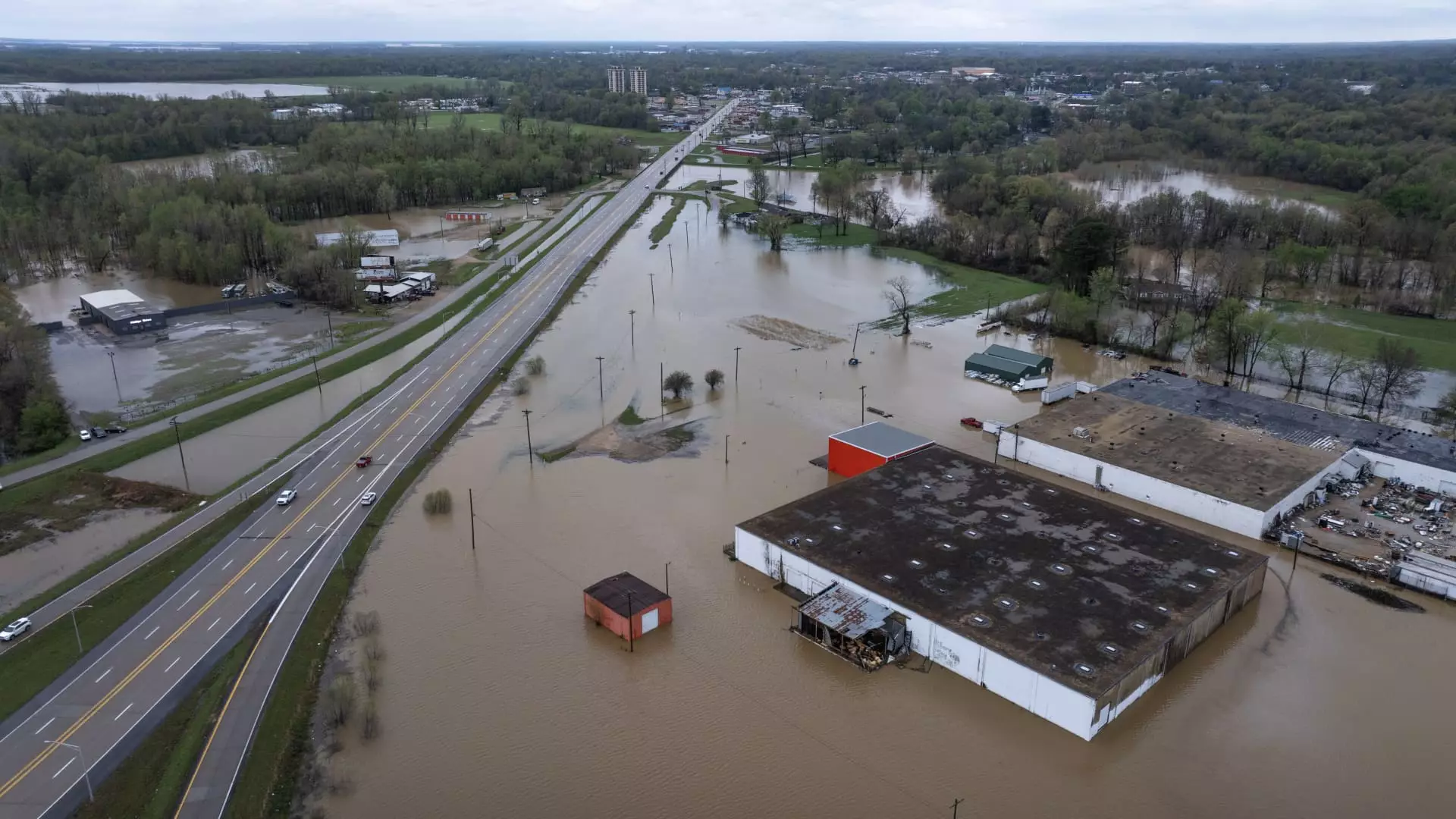In an age where climate change is increasingly influencing our daily lives, the recent devastating storms that swept through the Midwest and the Southeast serve as a harsh reminder of nature’s capriciousness. The heavy rains that poured over the Northeast, compounded by last week’s tumultuous weather, have left states in disarray, claiming the lives of at least 21 individuals and shocking communities into silence. This calamity isn’t just a fluke; it’s a symbol of the increasing volatility that characterizes today’s climate, a testament that our society is unprepared for the scale of destruction that weather extremes can bring.
As residents of states like Kentucky and Arkansas wake up to find their homes submerged and their lives uprooted, there’s an undeniable sense of sorrow heavy in the air. The scale of the flooding has reached alarming levels, with river levels in Louisville rising significantly within a mere day. It is hard to ignore the despair in the voices of fire department officials like Chad Womack of Anderson County, who remarked that his community is facing “one of those once-in-a-generation types of storms.” Such words underscore the reality that these extreme weather events are not merely historical anecdotes; they are becoming our current reality.
Communities in Crisis
When mandatory evacuations are enforced, it signifies more than just water rising; it reflects the moment when safety and survival supersede all else. The stories emanating from the heart of Kentucky reveal a dark portrait of lives lost and belongings washed away, painting a grim outlook not merely for the present but for the future of communities that may never fully recover. The plight of those affected echoes louder than any political debate on climate change; it’s a grieving cry for attention to a serious, growing problem.
The alarming number of tornadoes reported—93 in just a short span—should send shockwaves through our collective consciousness. We can no longer treat these catastrophic events as isolated incidents. After all, they foreshadow a disturbing trend of instability that we ignore at our peril. Tornadoes forming as early as this year is a stark reminder that weather patterns are shifting, and we must adapt to this new reality rather than cling to outdated norms built on the stability of past decades.
Ignorance Amidst Evidence
As alarming as these weather phenomena are, one cannot ignore that the societal responses to climate change remain inadequate—often overshadowed by political inertia and denial. Here’s the sobering reality: These meteoric shifts in weather occur against a backdrop of complacency; many still view climate science with skepticism. It’s a mindset that dismisses forms of vital action or preventative measures that could potentially save lives during these natural disasters. Rather than united in a desperate effort to combat these looming threats, nations and communities are drawn into paralyzing debates, undermining any chance of progress.
Meanwhile, as the storm systems drift away, other parts of the nation brace for their own unsettled weather. The Pacific Northwest faces the lash of Pacific storms, where coastal towns gear up for rain and snow, yet the lessons from storm-battered streets in the Southeast remain unheeded. Why hasn’t our society come together under a collective banner, insisting on a shift toward sustainable practices in the face of this meteorological chaos?
Call for Action
As the tragic outcomes of these extreme weather events unfold, the time for dialogue must evolve into action. This is a clamor for robust frameworks of response that prioritize preparation and resilience over negligence. It’s not merely about weather updates or discussions around climate patterns; it’s about creating tangible solutions that aim for a more sustainable future. We are teetering on an edge, and if immediate changes aren’t instituted across the board—from local policies to global agreements—we may very well find ourselves facing an unending cycle of devastation fueled by our inaction.
It is imperative that we stop viewing climate change as a distant or abstract theory and recognize it as a pressing reality impacting millions today. To do so is not merely about survival; it’s about honoring those who have already weathered these storms—and those who will come after them.


Leave a Reply